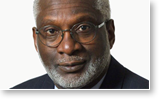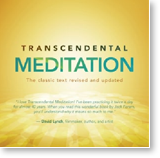 The following is an excerpt from the newly released book, “Transcendental Meditation: The Essential Teachings of Maharishi Mahesh Yogi” by Jack Forem.
The following is an excerpt from the newly released book, “Transcendental Meditation: The Essential Teachings of Maharishi Mahesh Yogi” by Jack Forem.
PREVENTION: MASTER KEY TO GOOD HEALTH

Spending on health care in the United States is projected to reach the totally incomprehensible amount of $4.3 trillion by 2017. But what do we Americans get in return for that enormous sum of money? As many readers of this book may know, the U.S. spends more per capita for health care than any other nation on Earth—a lot more—and yet our health “outcomes” lag far behind the best. According to a 2010 article in The New England Journal of Medicine, the U.S. ranks 37th in the world in overall health-care effectiveness, 39th for infant mortality, 43rd for adult female mortality, 42nd for adult male mortality, and 36th for life expectancy.
We are exposed to periodic, heated public wrangling over health care, but if you listen carefully, you’ll notice that the debate is never about either health or care; it is all about money and funding. The question you and I would consider of most vital importance—What can be done to help people stay healthy?—is never discussed, even though it seems like the most practical and intelligent solution to the health-care crisis.
This was Maharishi’s view.
“To build more hospitals to alleviate sickness and suffering for people who have already fallen ill is a laudable act of charity,” he said, but “it is infinitely more important to find ways and means of preventing people from falling sick and of ensuring that they will always enjoy good health.” It is always beneficial, in the words of an old proverb, to “avert the danger that has not yet come.”
During a press conference in 2004, an American reporter asked Maharishi what he thought about the high cost of health care and the fact that many people couldn’t afford it. Immediately Maharishi shot back:
“It is sickness that costs money, not health. To be healthy, one has to be regular in the awareness of one’s own immortality of consciousness within himself. He does not need money. Money is needed when people fall sick, and more money is needed when the medicines are not able to cure the sicknesses. And more money and more money . . . any amount of money can be spent, but if prevention is not instituted, there is no hope for the people to be healthy.”
“Medicine traditionally stands on two pillars: prevention and cure,” Harvard Medical School’s Alexander Leaf, M.D., wrote in JAMA, the Journal of the American Medical Association. “For the past century, the profession has rallied almost exclusively under the banner of curative medicine.”
This is especially true in the United States, which allots just 2 to 3 percent of its health-care budget to prevention. According to Dr. David Satcher, a former Surgeon General, and Director of the Centers for Disease Control (CDC), prevention is “undervalued and poorly supported in our health system. . . . We spend well over 90 percent of our national health budget treating diseases and complications— many of which could have been prevented in the first place.”
Even the meager sums allotted for “prevention” usually involve testing or “screening” (for example, mammograms or blood workups), often at considerable expense. If you think about it, it’s clear that these do not prevent illness; they merely let you know whether you have something wrong with you. At best, they can catch a problem in its early stages and try to prevent it from getting worse.
Real prevention is entirely different. It is a way of life designed to promote good health and thereby prevent illness from arising. Whether self-chosen or worked out in collaboration with a knowledgeable physician, it includes practical, personalized guidelines for diet, exercise, rest, “stress management,” and whatever you need to live a healthy life, according to your specific needs, and your particular constitution and life circumstances. Conscientious physicians often do take a few minutes to urge their patients to lose weight, quit smoking, and get up off the couch, but much more than that they really cannot do in the limited time they have with each patient.
REDUCING HEALTH-CARE COSTS
Several studies on medical-care usage in the United States and Canada have found dramatically reduced hospitalization and outpatient physician visits by people practicing TM. This is true for people of all ages, but especially for older individuals. At a time when healthcare costs are rising and a large portion of the population is moving into the later years of life, this is surely one of the most significant results of TM, for individuals and for society.
You can save 25% by purchasing Transcendental Meditation: The Essential Teachings of Maharishi Mahesh Yogi online at Amazon.com for $12.45.
The Kindle edition is available for under $10.







